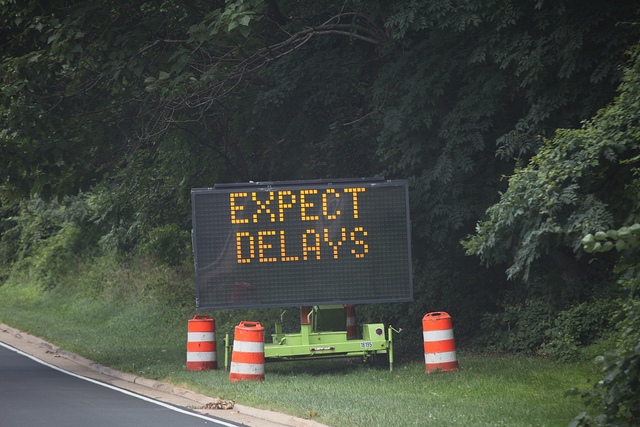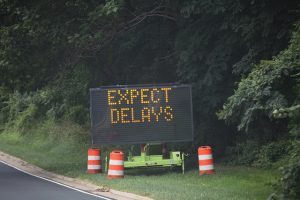
Congestion in Congress created by major legislative issues has President Donald Trump’s proposed $1 trillion infrastructure plan stuck in traffic. Much to the dismay of state and local officials, few details of the plan have been released, other than that the President has promised an infusion of $1 trillion in both public and private funds to help repair and replace aging infrastructure needs nationwide.

Photo by Tom Woodward is licensed under CC BY 2.0
However, Trump this week held a private meeting with his infrastructure team, at which time he emphasized the importance of directing funding to states with “shovel-ready” jobs, according to an article in The Wall Street Journal. The newspaper quoted Trump as saying money would be allocated to states that “can prove that they can be ready, willing and able” to begin projects quickly, and suggested a startup time of 90 days from the time an allocation is approved.
The Journal, the only media outlet invited to the meeting, also reported that a White House aide said movement on the Trump infrastructure plan is not likely to occur until after Congress has completed its work on two other major issues – health care and reforming the federal tax code.
Trump’s infrastructure plan, according to the Journal, “would pressure states to streamline local permitting, favor renovation of existing roads and highways over new construction and prioritize projects that can quickly begin construction.”
While public-private partnerships have been on the table from the outset as a means of funding infrastructure projects through Trump’s plan, a Trump aide also confirmed to the Journal that $200 billion in expected repatriated cash is also a possible funding source. Trump initially announced that he would support tax credits to encourage private investment in projects. At the meeting this week, conversation also continued regarding improving and speeding the regulatory processes related to infrastructure development and redevelopment.
Among the attendees at the meeting with Trump were Vice President Mike Pence, Transportation Secretary Elaine Chao, Energy Secretary Rick Perry and Environmental Protection Agency Administrator Scott Pruitt. A number of private-sector executives representing the real estate, financial, energy and other industries also attended, including real estate mogul Steven Roth and Richard LeFrak, an expert in real estate, energy sector and other sectors of the economy. The two are heading up Trump’s initiative on infrastructure.
The state of the nation’s infrastructure continues to decline and the longer the wait to invest in improvements, the higher the price tag will be. This week’s infrastructure meeting is a good first step, but conversations need to be elevated to top priority status to put Americans to work on projects that will affect both state and local economies and allow the U.S. to remain globally competitive.
